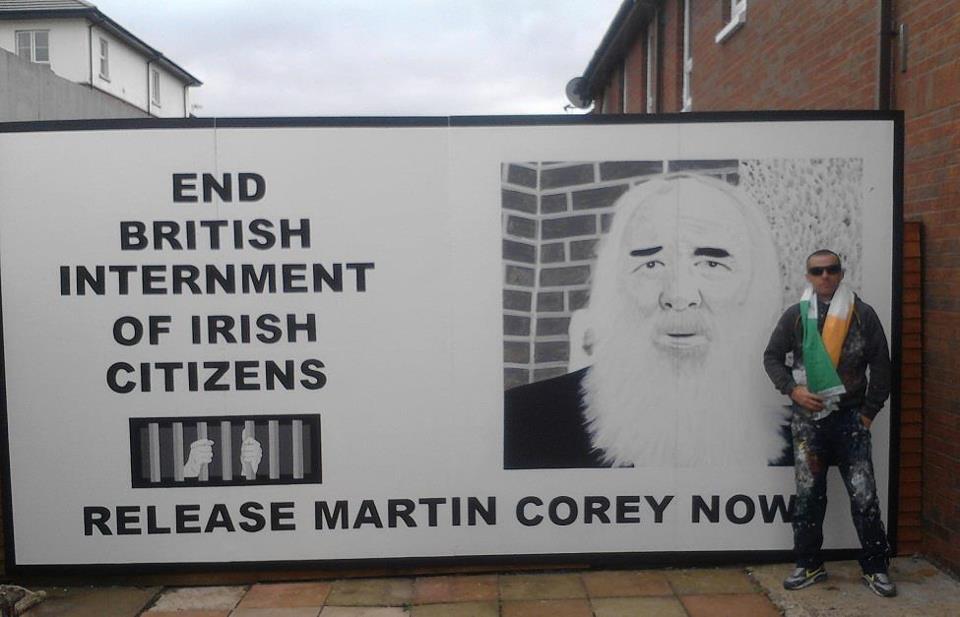by BASICS Team Kitchener-Waterloo
Irish Republican Martin Corey, who has been held for four years without trial, was released on January 15, 2014, from Maghaberry Prison in British-occupied Ireland by the Parole Commission. He was arrested four years ago and then held on secret evidence, despite the fact that he broke no law.
Corey was first arrested during the period known as “the Troubles,” the mass armed campaign against the British that stretched from 1966-2006, for his participation in a military action against the puppet forces of the British occupation, the Royal Ulster Constabulary. The purpose of his action was to disarm the RUC, a paramilitary organization that terrorized and murdered many republicans. Due to the violent response from these occupation forces, he was imprisoned for life. There currently remains over 100 Irish POWs and prisoners of conscience held in custody by the occupation.
In 1992 he was released from jail unconditionally and pretty much kept to himself. But in 2010 he was rearrested and held without charge; in other words, interned by the occupation forces. Corey has been outspoken against the continued occupation of the Six Counties entrenched by the Good Friday Agreement, Corey has been outspoken against the continued occupation of the Six Counties entrenched by the Good Friday Agreement.
In an interview with BASICS, Kitchener-based Irish Republican Mike Neary said, “The Good Friday Accords, which are portrayed in the West as a treaty that has brought peace to Northern Ireland, actually entrenched the occupation…. By entrenching the loyalist veto to reunification, pushing for a normalization of the army’s presence, removing political status and making issues those of ‘civil rights,’ national sovereignty is ignored”. Neary added, “Nowhere in the GFA does it talk about Irish people determining their own destiny and accepting the GFA means rejecting national sovereignty, since the peace in the GFA is simply a continuation of the same.”
In 2012, the British judge Treacy ruled that Corey’s interment was unconstitutional and was in breach of his human rights. Before he could even get out of custody and be with those who he loves, Owen Patterson, the unelected British secretary of state of Northern Ireland blocked his release.
Despite the fact that his recent release has been seen as a victory of the movement demanding his freedom, Cait Trainor, head of the free Martin Corey Campaign, noted that, “The treatment meted out to Martin Corey for nearly four years was nothing short of barbaric and it was difficult to get the general public and the media interested in Martin Corey’s internment from the beginning. While, quite rightly, we saw/see criticism of the mistreatment of prisoners in other countries — on social media and in the press — the case of Martin Corey was ignored, with a few honourable exceptions, by people here at home.”
Trainor added, “The various British secretaries of state hid behind a wall of silence and claimed that Martin Corey was ‘a threat to the public’. Their case was based on secret evidence/closed material and unspecified allegations. The role of the courts to ensure that ‘not only must justice be done, but must be seen to be done’ took such a back seat that it disappeared.”
On his release the statement from the Northern Ireland (sic) Office said “The Parole Commissioners have decided to release Martin Corey on a licence that is subject to conditions which are designed to manage the risk they assess him to pose.’ After four years of incarceration with no trial and no charges, many are still asking the question: ‘What risk’?
Comments
